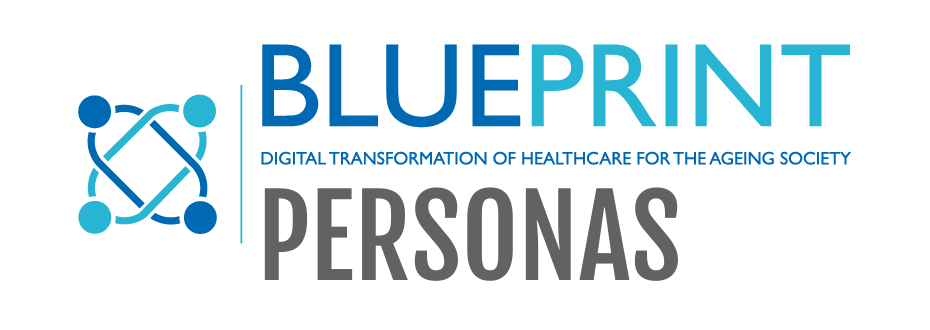Leila

Name
Leila
Age
51
Country
Afghanistan
Area
residential (rural)
Life course
working age adult
Need
Generally well / good wellbeing
Connectivity
broadband, smart phone, tablet, digital TV
Leila is in good health and works as manager in a senior home. She lives in a small village, 13 km from the nearest city, together with her sons, Sammy (10) who has type 1 diabetes and Ed (20), as well as Ed’s girlfriend. Leila is sporty and active and does not experience any special difficulties going through menopause, but her divorce 4 years ago has complicated her life. She also provides moderate support as an informal carer to 3 elderly adults in her life: her father, who lives in a different town; her ex-mother-in-law, who has dementia and lives in a care home, and her 93-year old neighbour, who lives alone in a bungalow.
Internet usage
Mobile device skills
Affinity to new tech
Digital Health Literacy
Assistance (ICT use)
What's important to Leila
– Staying in good health; attending a weekly Tai Chi class and running 2x/week, keeping a small garden in shape.
– Family-oriented but keen to become more independent (e.g. moving home once eldest son and girlfriend graduate).
– Being socially conscientious and people-focused.
– Being good at multi-tasking.
– Family-oriented but keen to become more independent (e.g. moving home once eldest son and girlfriend graduate).
– Being socially conscientious and people-focused.
– Being good at multi-tasking.
Health concerns
– She has no immediate health concerns, but her eyesight is potentially worsening; she had occasional back problems in the past due to work that required heavy lifting.
– She had several short-term relationships in the past. On one occasion, she experienced bladder inflammation (cystitis).
– She is menopausal but experiencing no side-effects.
– She had several short-term relationships in the past. On one occasion, she experienced bladder inflammation (cystitis).
– She is menopausal but experiencing no side-effects.
Daily living
– Leila balances well her multiple responsibilities.
– Leila and her family are highly dependent on her income.
– Both her job and family require her to stay healthy and mobile (able to travel).
– Leila and her family are highly dependent on her income.
– Both her job and family require her to stay healthy and mobile (able to travel).
Health tests
– Regular breast cancer tests and cervical smears.
– Regular blood pressure tests.
– In the future when Leila turns 60, she will be able to have a general comprehensive health check/test.
– Regular blood pressure tests.
– In the future when Leila turns 60, she will be able to have a general comprehensive health check/test.
Events, issues & personal concerns
– Winters can sometimes be tough, especially because of the amount of car driving Leila does. She wonders whether she could be experiencing winter depression (“Seasonal Affective Disorder – SAD”) and would like to bring this up with her GP.
Treatment: medications, therapies, etc.
– Still taking oral contraceptives, which are free with her country’s health service.
– Keeps a standard “first aid kit” in the house, filled with aspirin and paracetamol just in case they are needed.
– Keeps a standard “first aid kit” in the house, filled with aspirin and paracetamol just in case they are needed.
Own resources & assets / support
– Leila remains economically independent until retirement age.
– Her 2 sons are helpful around the house and in the garden and she has a cleaner who comes twice a week.
– Leila, her son Ed and his girlfriend are all able to drive.
– She is well-informed about the local care services on offer.
– Her 2 sons are helpful around the house and in the garden and she has a cleaner who comes twice a week.
– Leila, her son Ed and his girlfriend are all able to drive.
– She is well-informed about the local care services on offer.
Care professional concerns
– Leila is less concerned with the situation of her father and ex-mother-in law, but is considering getting in touch with her elderly neighbour’s family about potential future care needs.
– Due to her own family responsibilities, she may overlook her own needs as an individual.
– Due to her own family responsibilities, she may overlook her own needs as an individual.
Needs
– Food shopping service for herself and her neighbour.
– Potential insulin training for her son, Sammy, so that he can start monitoring his insulin himself.
– Information on SAD and/or potential check-up with doctor.
– Because Leila is a member of the Asian community, with particular health development needs, she is aware of people close to her who are developing or who are at risk of developing diabetes.
– Leila is aware of elderly members of her community who have language difficulties when talking about their health situations and needs.
– Potential insulin training for her son, Sammy, so that he can start monitoring his insulin himself.
– Information on SAD and/or potential check-up with doctor.
– Because Leila is a member of the Asian community, with particular health development needs, she is aware of people close to her who are developing or who are at risk of developing diabetes.
– Leila is aware of elderly members of her community who have language difficulties when talking about their health situations and needs.
